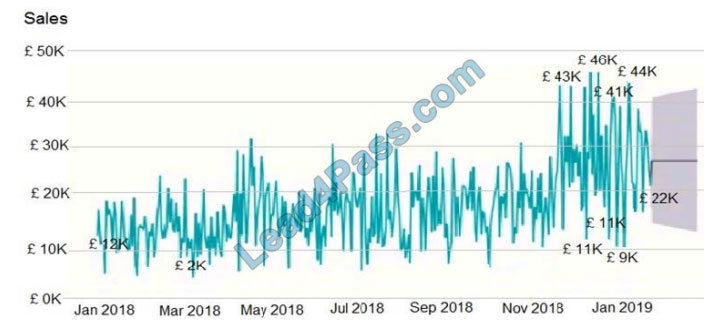Category: Microsoft Certified: Power BI Data Analyst Associate
Written by Felicidad D. BushMay 31, 2022
pl-300 dumps Updated | Prepare for the Microsoft Power BI Data Analyst exam
Prepare for the Microsoft Power BI Data Analyst exam with the newly updated PL-300 dumps to help you make your career leap. pl-300 dumps are preparation material for the Microsoft Power BI Data Analyst exam. The most popular search term “dumps” is actually a general term for exam PDF and VCE. So if you download
Recent Posts
Categories
Microsoft Exam Dumps PDF Download
Microsoft Azure Exam PDF Free Download
- Microsoft az-104 PDF Free Download
- Microsoft az-120 PDF Free Download
- Microsoft az-140 PDF Free Download
- Microsoft az-204 PDF Free Download
- Microsoft az-220 PDF Free Download
- Microsoft az-305 PDF Free Download
- Microsoft az-400 PDF Free Download
- Microsoft az-500 PDF Free Download
- Microsoft az-700 PDF Free Download
- Microsoft az-800 PDF Free Download
- Microsoft az-801 PDF Free Download
Microsoft Data Exam PDF Free Download
- Microsoft AI-102 PDF Free Download
- Microsoft DP-100 PDF Free Download
- Microsoft DP-203 PDF Free Download
- Microsoft DP-300 PDF Free Download
- Microsoft DP-420 PDF Free Download
- Microsoft DP-600 PDF Free Download
Microsoft Dynamics 365 Exam PDF Free Download
- Microsoft MB-230 PDF Free Download
- Microsoft MB-240 PDF Free Download
- Microsoft MB-310 PDF Free Download
- Microsoft MB-330 PDF Free Download
- Microsoft MB-335 PDF Free Download
- Microsoft MB-500 PDF Free Download
- Microsoft MB-700 PDF Free Download
- Microsoft MB-800 PDF Free Download
- Microsoft MB-820 PDF Free Download
- Microsoft pl-100 PDF Free Download
- Microsoft pl-200 PDF Free Download
- Microsoft pl-300 PDF Free Download
- Microsoft pl-400 PDF Free Download
- Microsoft pl-500 PDF Free Download
- Microsoft pl-600 PDF Free Download
Microsoft 365 Exam PDF Free Download
- Microsoft MD-102 PDF Free Download
- Microsoft MS-102 PDF Free Download
- Microsoft MS-203 PDF Free Download
- Microsoft MS-700 PDF Free Download
- Microsoft MS-721 PDF Free Download
Microsoft Fundamentals Exam PDF Free Download
- Microsoft 62-193 PDF Free Download
- Microsoft az-900 PDF Free Download
- Microsoft ai-900 PDF Free Download
- Microsoft DP-900 PDF Free Download
- Microsoft MB-901 PDF Free Download
- Microsoft MB-910 PDF Free Download
- Microsoft MB-920 PDF Free Download
- Microsoft pl-900 PDF Free Download
- Microsoft MS-900 PDF Free Download
Microsoft Certified Exam PDF Free Download
Tags
az-204
az-204 dumps
az-204 exam questions
az-600
az-600 dumps
az-600 exam questions
az-700
az-700 dumps
az-700 dumps questions
az-700 exam questions
az-700 free dumps
az-800
az-800 dumps
az-801
az-801 dumps
az-801 free dumps
az-900
az-900 dumps
az-900 exam questions
az-900 free dumps
dp-900
dp-900 dumps
dp-900 exam questions
latest az-900 dumps
latest az-900 exam questions
Leads4pass
leads4pass az-700 dumps
leads4pass az-900 dumps
leads4pass az-900 exam questions
Leads4pass dp-900 dumps
mb-260
mb-260 dumps
mb-260 exam questions
mb-910
mb-910 dumps
ms-700 dumps
ms-720
ms-720 dumps
ms-720 free dumps
sc-200
sc-200 dumps
sc-200 free dumps
sc-400
sc-400 dumps
valid MS-720 dumps question

Recent Comments